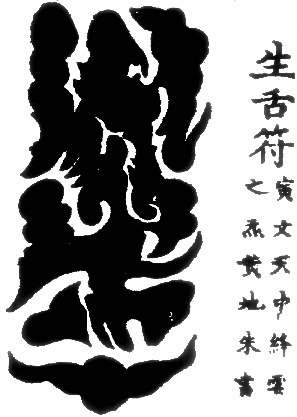
Thus, beginning with total linguistic relativism, Chuang Tzu ends with a sort of metalinguistics. Spillover words do not ward and sector, they PLAY. They contain more than they contain - therefore, like the famous cleaver which never needs sharpening because the Taoist butcher can pass it between all tendons and joints, the Spillover word "finds its proper channel."The sage does not become trapped in semantics, does not mistake map for territory, but rather "opens things up to the light of Heaven" by flowing with the words, by playing with the words. Once attuned to this flow, the sage need make no special effort to "illumine", for language DOES IT by itself, spontaneously. Language spills over.
Now, recall that Saussure was studying the Latin anagrams, and that he found the key words of the poems spilling over into other words. Syllables of characters' names for example are echoed in words describing those characters. At first the founder of modern linguistics considered these anagrams as conscious literary devices.
| Talisman to vitalize the tongue. It is to be used under the sign of the third branch of the Twelve Earthly Branches, with corresponding symbolic animal Tiger, zodiacal sign Gemini. It represents the Vital Energy (ch'i) of the purple clouds of the Centre of Heaven. It is painted in cinnabar-red on a yellow ground. Attributed to Ling-pao. (in an early 12th-century work by Lin Ling-su, Tao-tsang) |
AIMLESS WANDERING |